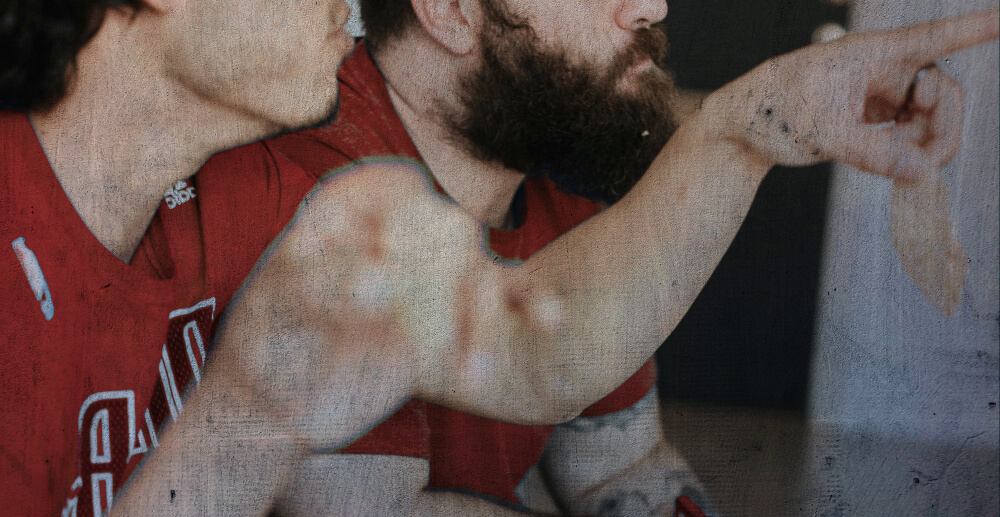There are many ways to treat addiction and substance use disorder. We need to stop judging one another for the path they take to recovery.
I once received a Facebook message from a stranger who told me I was responsible for her relapse—that my closed mind about how to recover had caused her to drink. She railed against my podcast as the direct cause of her issues. I was surprisingly uninjured by the accusation; I just felt bad that she felt bad, so I replied to her. I said I understood that she was upset, and that there were plenty of other podcasts out there that she’d probably like more than mine. Her response was so vitriolic that I had to eventually block her.
The irony is that I wholeheartedly believe that any path someone wants to take to recovery is the right path for them. I get why she didn’t see that; my podcast has been mostly about writing and marketing books for the past couple of years, but the episodes about recovery (the episodes she was angry about) usually feature interviews with people who are pretty into the 12-step way. And I was once one of those people who believed that anyone who didn’t do the program was destined to a life of jails, institutions, or death.
“The irony is that I wholeheartedly believe that any path someone wants to take to recovery is the right path for them.”
I don’t feel that way anymore.
Why is there such a division between 12-step and non-12-step recovery?
The problem is that we live in an increasingly polarized world, with two differing factions constantly lobbing insults at one another and labeling the other side as ignorant. While I’m clear about which side of this I’m on, I’m more interested in how it’s being argued than in what is being argued. Many of us are simply unwilling to even try to understand the other side and the problem with this is that, as a Medium piece by Charlie Ambler stated, “No matter how smart you are, as soon as you identify yourself with a specific ideology, your intelligence stops there.” In other words, confirmation bias exists, which is to say that if we’re passionate about our opinion on something, our minds snap shut unless we’re hearing or reading about it in a way that supports our point of view.
Before I got sober, I assumed that 12-step was a cult. They had creepy bumper stickers that said things like “Let Go and Let God” and people who evangelized about how amazing it was. And so I read every book I could that confirmed I was right to hate it. Then I got desperate enough that I was willing to try anything—including something that I was sure was a cult. So I tried it and discovered it was nothing like I expected it to be—that, in fact, it saved my life. I thought every addict and alcoholic (and even so-called normies) needed it.
Then I learned that I was wrong.
There are other possibilities for recovery
Turns out there are all sorts of ways to treat alcoholism and 12-step is only one of them. I am 1000% clear that it works for me—not just in terms of eliminating my desire to drink or do drugs these past 21 years, but also in terms of helping me to deal with the issues that caused me to drink and do drugs alcoholically. But I am also 1000% clear on the fact that there are plenty of people out there for whom it doesn’t work.
“Turns out there are all sorts of ways to treat alcoholism and 12-step is only one of them.”
If I hadn’t spent a decade writing about addiction—and thus hearing from those on both sides of the spectrum—I don’t think I would have arrived here. But over these years, I’ve heard from people who quit on their own, people who got sober with 12-step but haven’t done the program in years, people who quit doing drugs but still drink and seem to manage it just fine, people who quit drinking but still occasionally do drugs and seem to manage that just fine, people who got sober using cognitive behavioral therapy, people who quit through chanting or Buddhism or Celebrate Recovery or yoga. Who am I to say what they’re doing doesn’t work? It is working!
And so I’ve realized I can’t have an opinion on anyone but me, since I don’t have access to anyone else’s brain (no matter how much I may fancy myself a mindreader).
I still wish more members of the anti-12-step camp could have the same attitude. Honestly, I’m tired of seeing them rail against a program that has saved millions of people’s lives. They often throw around low success rates, despite the fact that meetings don’t offer survey-takers, and so every study is by necessity based on a small sample group that is, at best, unreliable. Some of the most zealous opponents of 12-step recovery seem to have little experience with these programs directly, and thus sit stiffly in the camp I was in before I had direct experience. Others do have direct experience—direct bad experiences with a few people—and thus believe that the people with whom they’ve had those bad experiences represent everyone in 12-step.
The truth is this: in politics as well as in recovery, no side is going to convince the other that it’s right. So can’t we just agree to disagree and stop with the vitriol?




